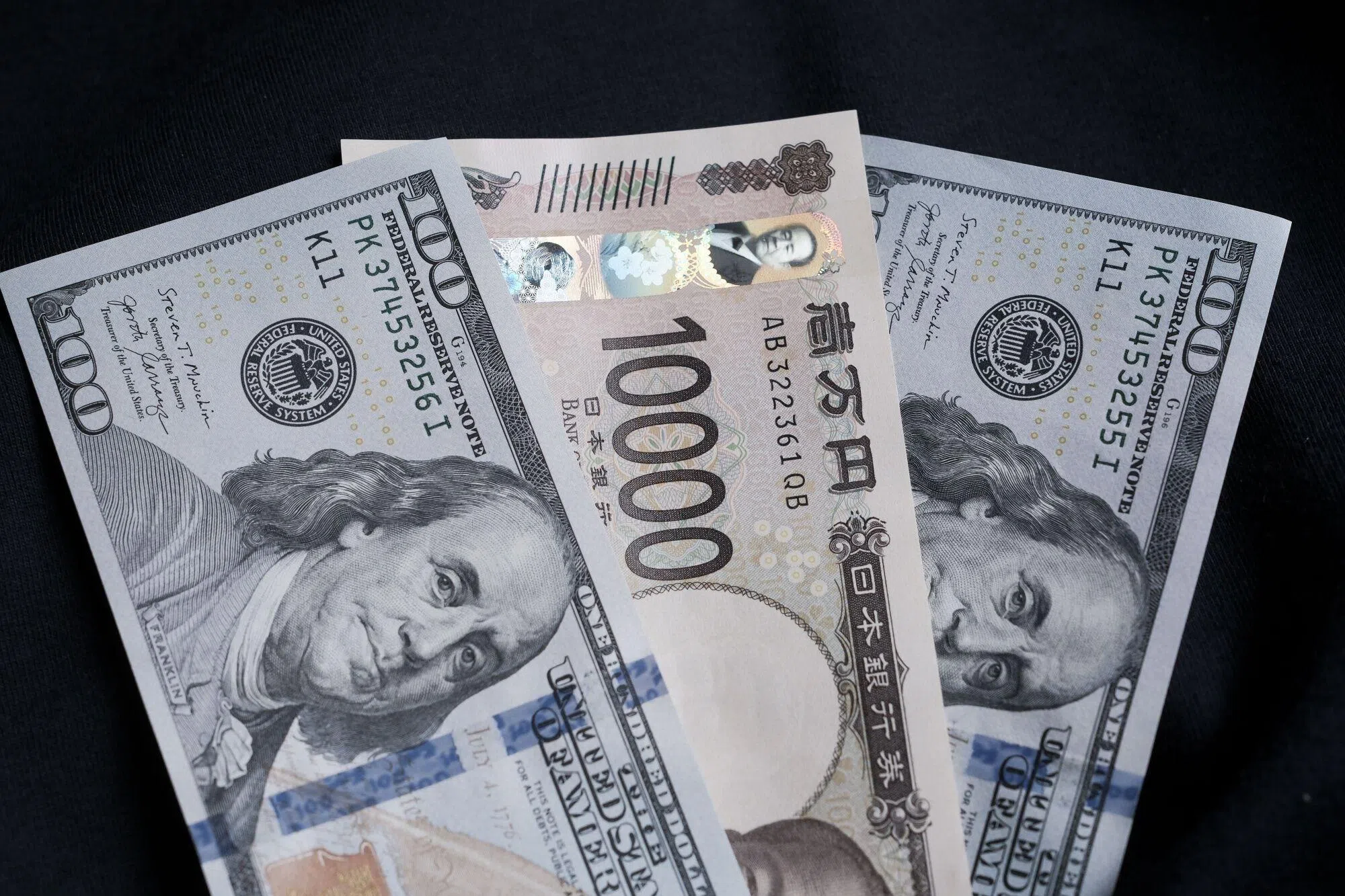WILD swings in the Japanese yen and a vicious market selloff led speculative traders to pull back on bets for further weakness in the currency, according to the latest Commodity Futures Trading Commission (CFTC) data.
Hedge funds cut their wagers against the yen by 49,336 contracts to 20,243 in the week ended Aug 6, CFTC data released on Friday (Aug 9) show. That is the fifth-largest boost to trader sentiment in data going back to 2006.
The pullback came after an epic rally in the yen tied to expectations the Bank of Japan (BOJ) will keep raising interest rates. That stoked a rethink around the globe of so-called carry trades, which involve borrowing a currency from a country with lower interest rates – such as Japan – to buy assets in a nation with higher rates.
“The recent move in the yen has caused a significant unwinding of carry trades,” said Yuya Yokota, a foreign exchange trader at Mitsubishi UFJ Trust and Banking in New York.
Strategists at Morgan Stanley estimated that some 60 per cent of yen-funding carry trades have been unwound in recent weeks – while acknowledging a large margin of error in that figure. JPMorgan Chase, meanwhile, said about three quarters of the global carry trade has been removed.
While the BOJ faced some criticism for sparking market volatility with its latest rate hike, some analysts point out that it would have been worse if they waited given the unwinding of carry trades.
BT in your inbox
Start and end each day with the latest news stories and analyses delivered straight to your inbox.
“The BOJ would have had a very strong idea about where the carry trade was and how much money was involved in it and how markets would react,” said Chris Weston, head of research at Pepperstone Group. “It makes sense for them to have done it at this meeting and deflate the carry trade.”
Hedge funds have been unwinding bets on a weaker yen since late July, when bearishness reached the highest level in nearly seven years. They have now shrunk those bearish positions to total US$1.8 billion from about US$5.7 billion the prior week.
The yen has been strengthening sharply in recent weeks, up 10 per cent against the dollar since it touched a 38-year low in early July.
While the BOJ fuelled that rally by taking a hawkish stance at its policy meeting in late July, the yen reversed course after BOJ deputy governor Shinichi Uchida indicated policymakers would hold off on hikes if financial markets were too unstable. Although Uchida emphasised the bank still intends to consider raising rates once volatility had calmed, the shift in tone left traders confused.
“The sudden rush for the exits on the yen carry trade was impulsive,” said Brad Bechtel, global head of FX at Jefferies Financial Group. “The market was burned on the suddenness of the moves, so it will take some time to repair.” BLOOMBERG







